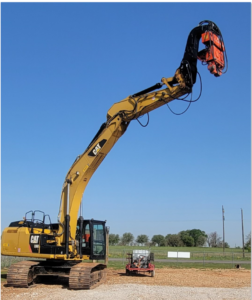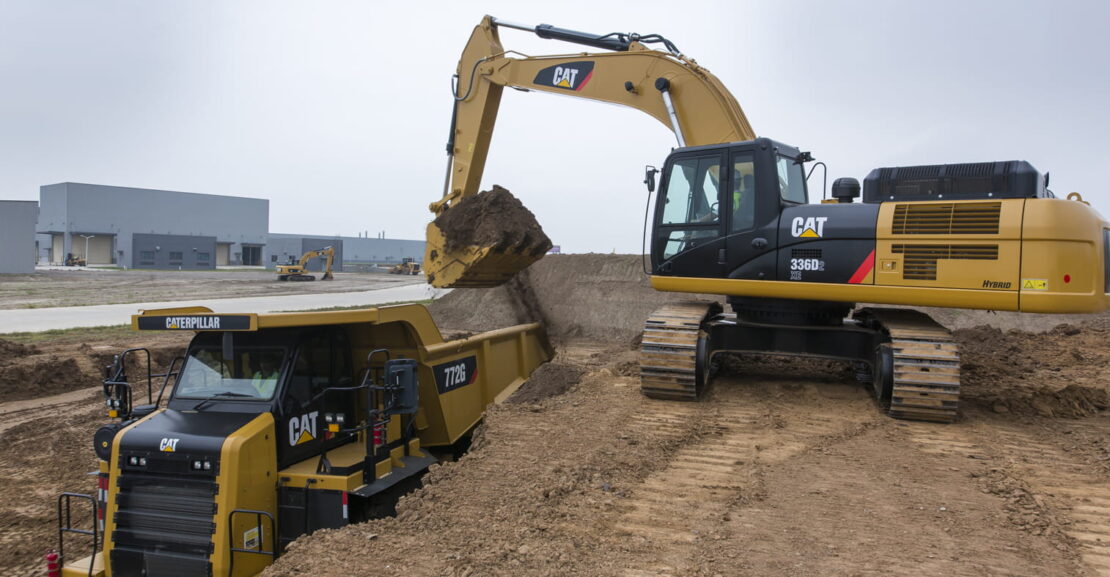Excavators, those powerful machines with hydraulic arms and bucket attachments, are stalwarts of construction sites across the United States. They are renowned for their proficiency in digging, trenching, and earthmoving tasks. However, the utility of these heavy-duty workhorses extends far beyond their excavation prowess. In this article, we embark on a comprehensive journey through the world of excavators, exploring not only the brands that dominate the U.S. market but also the diverse array of functions they fulfill. From land clearing and demolition to forestry and mining, excavators have evolved into multifaceted tools indispensable to various industries. So, join us as we uncover the most popular excavator brands in the U.S. and delve into the myriad roles these versatile machines play in shaping the nation’s infrastructure and landscape.
Popular Excavator Brands in the U.S.:
1. Caterpillar (CAT): Caterpillar is an industry giant known for its robust and reliable excavators. CAT offers a wide range of excavator models, from compact to large, designed to cater to various construction needs.
2. Komatsu: Komatsu excavators are respected for their innovation and performance. They are frequently chosen for their advanced technology and fuel efficiency.
3. John Deere: Renowned for their durability and quality, John Deere excavators are preferred by many in the construction and forestry sectors.
4. Hitachi: Hitachi is another popular brand, particularly known for its large excavators used in mining and heavy construction.
5. Kobelco: Kobelco excavators are admired for their precision and versatility, making them suitable for a wide range of applications.
6. Volvo: Volvo excavators are celebrated for their fuel efficiency and operator comfort, factors that contribute to their popularity on construction sites.
Diverse Applications Beyond Excavation:
 While excavators excel at digging and moving earth, their adaptability has led to a plethora of applications across industries:
While excavators excel at digging and moving earth, their adaptability has led to a plethora of applications across industries:
1. Land Clearing: Excavators are used to remove trees, bushes, and debris when preparing land for construction or agriculture.
2. Demolition: Equipped with specialized attachments, excavators can dismantle buildings and structures with precision and safety.
3. Forestry: In forestry operations, they assist in felling trees, removing stumps, and transporting logs.
4. Mining: Large excavators are integral to mining operations, where they dig ore and remove overburden.
5. Road Construction: Excavators play a pivotal role in building roads, from digging foundations to shaping ditches and embankments.
6. Utilities: They are employed in the installation and repair of utility lines, such as water, gas, and electricity.
7. Environmental Cleanup: Excavators are used in disaster response and environmental cleanup efforts to clear debris and restore affected areas.
8. Material Handling: Excavators with grapples or thumbs are adept at handling materials like rocks, logs, and scrap metal.
9. Snow Removal: In regions with heavy snowfall, excavators with snowplow attachments help clear roads and parking lots efficiently.
In conclusion, excavators are integral to the construction and various other industries in the U.S. With a variety of brands and models available, these versatile machines continue to evolve, offering enhanced performance, efficiency, and safety. Their adaptability extends their usefulness beyond excavation, making them indispensable tools in shaping the nation’s infrastructure and landscape.
Which excavator brands are sold the most in the US and what else are they used for other than excavating?
This article explores the most popular excavator brands in the U.S. and delves into the multifaceted roles these versatile machines play. Renowned brands like Caterpillar, Komatsu, John Deere, and Hitachi dominate the market, offering various models to meet diverse construction needs. Beyond excavation, excavators excel in land clearing, demolition, forestry, mining, road construction, utilities, environmental cleanup, material handling, and even snow removal. Their adaptability makes them indispensable in shaping the nation's infrastructure and landscapes across various industries.
